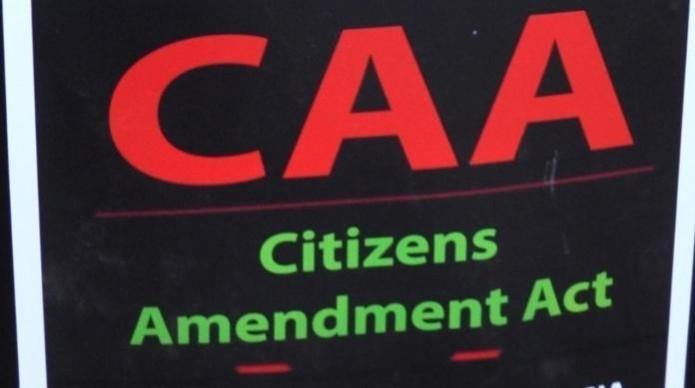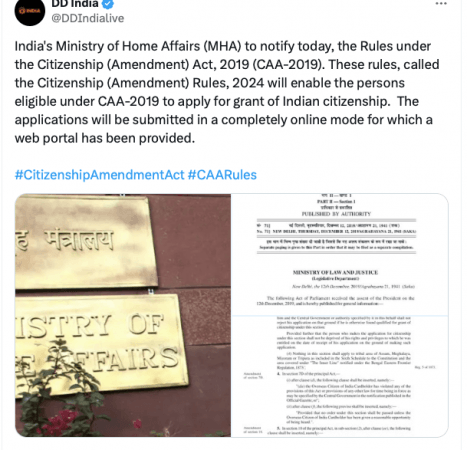
Passed in December of 2019, the contentious Citizenship Amendment Act became a reality on Monday as the Union Home MInistry notified Citizenship Amendment Act (CAA) rules, days ahead of the Lok Sabha 2024 election schedule. Back in 2019, the Act had sparked nationwide protests and had even caused riots owing to its provisions believed by several to be discriminatory on the basis of religion.
The Act seeks to fast-track Indian citizenship to Hindus, Sikhs, Buddhists, Jains, Parsis, Christians but not Muslims who migrated to India as a result of religious persecution in the neighbouring Pakistan, Bangladesh and Afghanistan.
Ever since the beginning of the year, speculations have been rife about the time frame when CAA would be implemented, with several sources agreeing, including BJP leaders, that it would be some time before Lok Sabha polls. Last year, Amit Shah called the Act, "the law of the land."
What the rules say?
Provided that, "Any person belonging to Hindu, Sikh, Buddhist, Jain, Parsi or Christian community, from Afghanistan, Bangladesh or Pakistan who entered into India, on or before 31st day of December 2014 and who has been exempted by the Central Government under Section 3 of the Passport (Entry into India) Act 1920, or from the application of the provisions of the Foreigners Act, 1946 shall not be treated as illegal migrant under this Act.

Certificate of registration or naturalization
It further empowers the Central Government to grant the status of citizenship to anyone it deems fit by registration or naturalization. "The Central Government, subject to such provisions, restrictions and manner as may be prescribed, grant a certificate of registration or certificate of naturalization, shall be deemed to be a citizen of India from the date of his entry into India."
On and from the date of commencement of the Citizenship Amendment Act, 2019 any proceeding pending against a person under this section in respect of illegal migration or citizenship shall stand abated on conference of citizenship to him.
Provided that such person shall not be disqualified for making application for citizenship under this section on the ground that the proceeding is pending against him and the Central Government or authority specified by it in this behalf shall not reject his application on that ground if he is otherwise found qualified for grant of citizenship under this section:
Not applicable to tribal areas
Provided further that the person who makes the application for citizenship under this section shall not be deprived of his rights and privileges to which he was entitled on the date of receipt of his application on the ground of making such application. Nothing in this section shall apply to the tribal area of Assam, Meghalaya, Mizoram or Tripura as included in the Sixth Schedule to the Constitution and the area covered under "The Inner Line" notified under the Bengal Eastern Frontier Regulation, 1873.
In Section 7D of the Principal Act
(i) After clause (d) the following clause shall be inserted, namely: — The Overseas Citizen of India Cardholder has violated any of the provisions of this Act, or provisions of any other law for the time being in force as may be specified by the Central Government in the notification published in the Official Gazette. Provided that no order under this section shall be passed unless the Overseas Citizen of India Cardholder has been given a reasonable opportunity of being heard."
Not less than five years, not eleven years
In another of the key changes, the act states that, "In the Third Schedule II to the principal act, (d), the following proviso shall be inserted, namely. Provided that for the person belonging Hindu, Sikh, Buddhist, Jain, Parsi, or christian community in Afghanistan, Bangladesh or Pakistan, the aggregate period of residence or service of Government in India has required under this clause shall be read as "not less than five years" in place of "not less than 11 years."

















